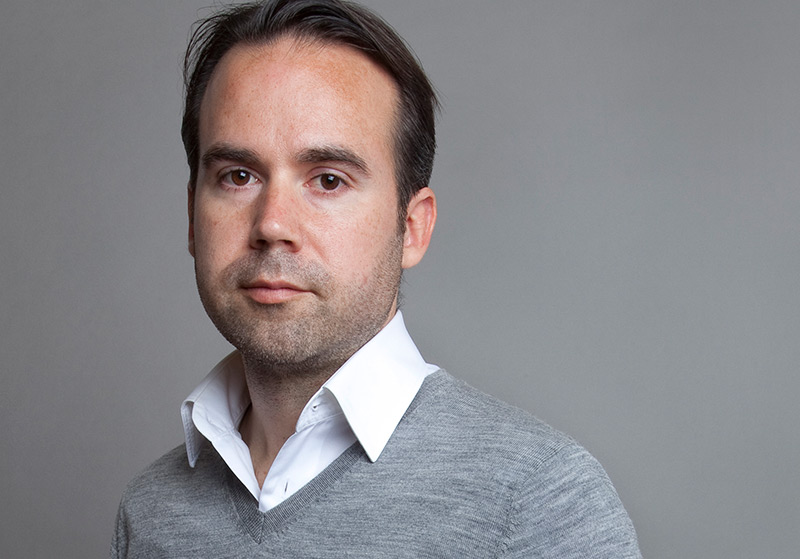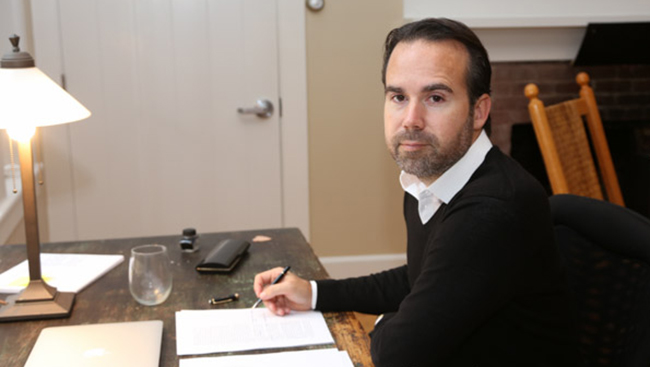 Photo courtesy of Holger Keifel.
Photo courtesy of Holger Keifel.
Mario Kaiser got his first taste of journalism as a writer at his high school newspaper in his hometown of Rheydt, Germany. There, he experienced firsthand the consequences and challenges of journalism: He was thrilled to have a public forum for his work, but as the editor, responsible for soliciting local businesses to purchase ads, he quickly realized how difficult it could be to fund.
In one particularly memorable incident, he was threatened with a lawsuit for defamation after publishing a scathing editorial on the school principal without giving him an opportunity to respond. The lawsuit never materialized, but all copies of the issue in question were distributed with a penitent note from the editor.
“This was my first tutorial in the craft and ethics of journalism: not to act impulsively, not to substitute reporting for opinion, to weigh your words, and to be fair to the people you write about,” Mario says.
Luckily, the experience only whetted Mario’s appetite. After graduating from the University of Bonn, he completed a master’s degree in journalism at New York University, fulfilling a longtime dream of his. “I voraciously read the Times, the New Yorker, Harper’s, the Village Voice,” he says. “I was convinced that the best journalism in the world was made in New York.”
These days, he is a New York City-based writer, and, recently, was the recipient of the Vilcek Foundation Fellowship at the MacDowell Colony, the oldest artist residency program in the United States. The fellowship was a part of MacDowell’s 2015 Art of Journalism Initiative, which sought to support long-form and narrative journalists by doubling the number of fellowships available for such writers, and by providing grants for project-related expenses.
 Photo courtesy of Joanna Morrissey.
Photo courtesy of Joanna Morrissey.
Such journalism usually takes months, or even years, to complete. “It can be a perilous business model,” Mario says. “What distinguishes narrative journalism is that it marries two qualities that are difficult to combine: It goes deep both in the reporting and the writing. At its best, it’s exhaustively researched journalism with a delicately woven texture—untangling a convoluted story and telling it with a clarity and precision that gives it a literary quality.”
It would seem, however, that Mario has mastered the form: His work has been published by Guernica, the International New York Times, and Christian Science Monitor, and he was also a reporter and editor at Die Zeit and Der Spiegel. His reporting has received a number of prestigious awards, including the Henri Nannen Prize, the Kurt Schork Award in International Journalism, and the Kurt Schork Award in Literary Journalism.
One of the projects Mario worked on during his residency at the MacDowell Colony—which provides meals, a studio space, and, most importantly, a period of uninterrupted work time at its New Hampshire campus—was his story “Mr. Ince and the Hope of Being Needed.” The story, which was published earlier this year on the literary website Narratively, was the culmination of over a year and a half spent shadowing Dursun Ince, a Turkish day laborer living in Berlin. Mario was a close observer of Mr. Ince, from the time he woke up, before sunrise, in order to be at the job agency when the day’s work assignments were announced—to his evenings at home, where he struggled with the prospect of planning for the future. It was vital to Mario’s process of thoroughly understanding his subjects, both their personal history and perspectives, and the larger social and political context that they find themselves in. His hope is that the original and rigorous approach to his projects enriches the way the public and policymakers think about the important challenges of our time.
The story about Mr. Ince was not the first time that Mario wrote about an immigrant; in fact, the stories of immigrants and migrants are central to his work. In the past, he has embedded himself with people smugglers in Albania, a German citizen who declared himself stateless, and Mexican migrants on their journey into the United States. His story “Death in Camp Delta,” about three prisoners who allegedly committed suicide in Guantánamo, had particular resonance for him. He considered the men, who were picked up in Afghanistan and ended up in in Cuba, migrants of their own kind. “Migrants carry these invisible suitcases with them,” Mario says, “and all of them are heavy.”